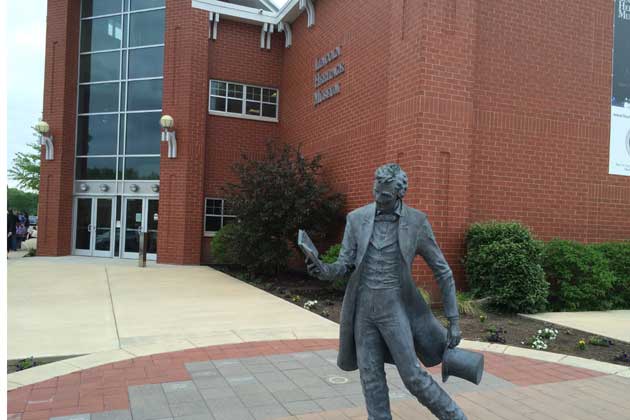
By David Stanczak
The longer I live, the more I realize that history is circular and not linear. The situations we encounter now have been encountered before, and looking at how they were addressed before can be quite illuminating. A few weeks ago, I began reading With Malice toward None, by Stephen Oates, a biography of Abraham Lincoln. I started reading because I knew my knowledge of Lincoln wasn’t up to par. I’ve only gotten as far as his 1858 race against Stephen A. Douglas for the Senate , but already several things in the book jumped out at me. One of them was dealing with 3rd party presidential politics. We’d seen that relatively recently (anybody remember Ross Perot, the guy with a high pitched drawl and ears bigger than Obama’s?), only in Lincoln’s time, this issue was the beginning of a transformation of political parties.
Similarly, I had thought that the legal, political, and social impact of Roe v. Wade was unique in American history until Oates described the impact and consequences of the Dred Scott decision. In addition to how appallingly bad it was, its influence on the politics of the time was profound, and detrimental. Rather than taking an issue off the table, as Harry Blackmun erroneously thought he had done in Roe, Roger Taney’s decision in Dred Scott inflamed the issue of slavery, and probably hastened the violence which ultimately came. Both cases stand, or should stand, as lessons about the hazards of “constitutionalizing” a controversial issue. Those types of issues need to be worked out by societies, something an arbitrary fiat allegedly based on the constitution fails to allow.
Lincoln caught a lot of grief over his anti-slavery views, including jeers from racists in certain pockets of Illinois, the mention of one of which did not surprise.
Apart from the history lesson, the book contained a lot of information which made Lincoln come alive, practicing law and doing things that politicians still do. He was notorious for failing to keep all the papers organized in his law office, even on occasion using his stovepipe hat as a storage area for papers and notes.
Santayana remarked that those who cannot learn from history are doomed to repeat it. His observation is validated in the book.
Abe, where are you now that we really need someone of your integrity?






